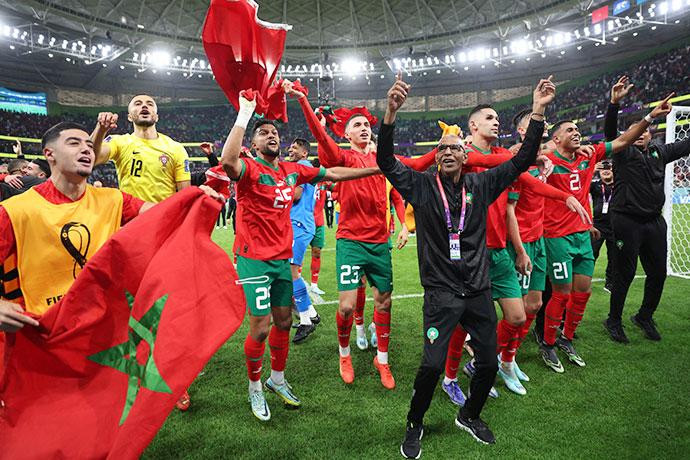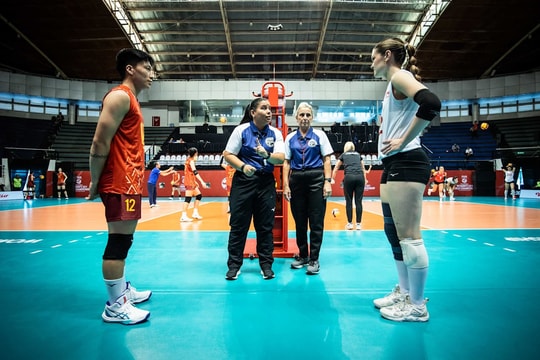Is 2022 the most exciting World Cup in history?
You can find all kinds of stories at this World Cup. From underdog surprises like Japan beating Spain and Saudi Arabia beating Argentina, to fairytale runs by Morocco and Croatia.
You can find all kinds of stories at this World Cup. From underdog surprises like Japan beating Spain and Saudi Arabia beating Argentina, to fairytale runs by Morocco and Croatia.
The human need for scripting
In 1944, there was a film that has become a classic in the world of… science. Its plot is extremely simple: a couple of lovers are taking a walk when a villain bursts out of the house and wrestles with the man.
The woman ran into the house to hide, and after “dealing with” the man, the killer went back inside to look for her. But somehow, the man woke up, went back into the house to open the door to rescue the girl. The villain watched helplessly as the two ran away, and angrily destroyed his own house.
This artistically meaningless film became famous because of… its actors. Psychologists Fritz Heider and Marianne Simmel of Smith College in Massachusetts created this film with characters consisting of large triangles (villains), small triangles (heroes), and circles (heroines), and it was a turning point in the empirical study of facial behavior, to understand the human impulse to construct stories.
The researchers surveyed 36 people, and 35 of them, after viewing, unanimously agreed that the large triangle was a mean, grumpy bully, while half identified the small triangle as a brave, strong character. There was almost no information other than the triangles and circles dancing on the screen, but people had built a story exactly as the researchers wanted.
Creating stories around drawings is one thing, but the human imagination goes beyond that. When the German musician Richard Wagner heard a passage from Beethoven's Symphony No. 3, he felt a vision of a 'lovely merry man, walking gaily and heartily through the fields of nature'.
Psychologists have discovered that narrative interpretation is a human need, and it shapes how we feel about any event. The same goes for sports matches: what we remember are not the facts, like the score of that match where Roger Federer broke his racket, but the memorable storylines, like the triumph of experience over youth (Jimmy Connors losing to Arthur Ashe in 1975) or the rivalry between two legends (Rafael Nadal and Roger Federer, Wimbledon final 2008).
 |
In fact, mathematician and social scientist Peter Sheridan Dodds of the University of Vermont and his colleagues have identified distinctive patterns in the stories told during games. By examining 1,300 games from the 2008-2014 seasons, they discovered the “popular” motifs of a team.
If Manchester United in their heyday had won every game by a large margin, even their fans would have gotten bored. But they haven’t. The Reds have “told” dramatic stories that ended in extra time (think of the Champions League final against Bayern in 1999), along with other memorable moments.
Too much material to tell
You can find all kinds of stories in this World Cup. From the surprises of the underdogs like Japan beating Spain and Saudi Arabia beating Argentina, to the fairytale journeys of Morocco and Croatia. You can also see heroes falling with unforgettable tears from Neymar and especially Cristiano Ronaldo. Goals in the 11th minute of injury time (the Netherlands drew with Argentina), in dramatic chases during the match and extra time, and many nerve-wracking penalty shootouts.
If you're a fan of geopolitical stories, you can also find them in Doha, such as the German team covering their mouths in protest against FIFA, and the rise of teams from the Arab world and Africa.
Perhaps when the 2022 World Cup is over and we look back, we will see its flaws, such as the hosts being eliminated too early and easily after three consecutive losses, or the fact that big names like Brazil, England, Portugal were significantly clean after the end of the quarter-finals. But one thing is for sure: we have many stories that will be told long after the Qatar Finals are over, with unforgettable emotions attached.
Because the 2022 World Cup has taken place with the materials to tell stories that create unprecedented emotions in history (a journalist even died of a heart attack while watching the Argentina - Netherlands match). And even though it has not ended, many people must have felt that this will be one of the best finals they have ever watched, and told to their children and grandchildren, with emotions that can remain intact over the years.








